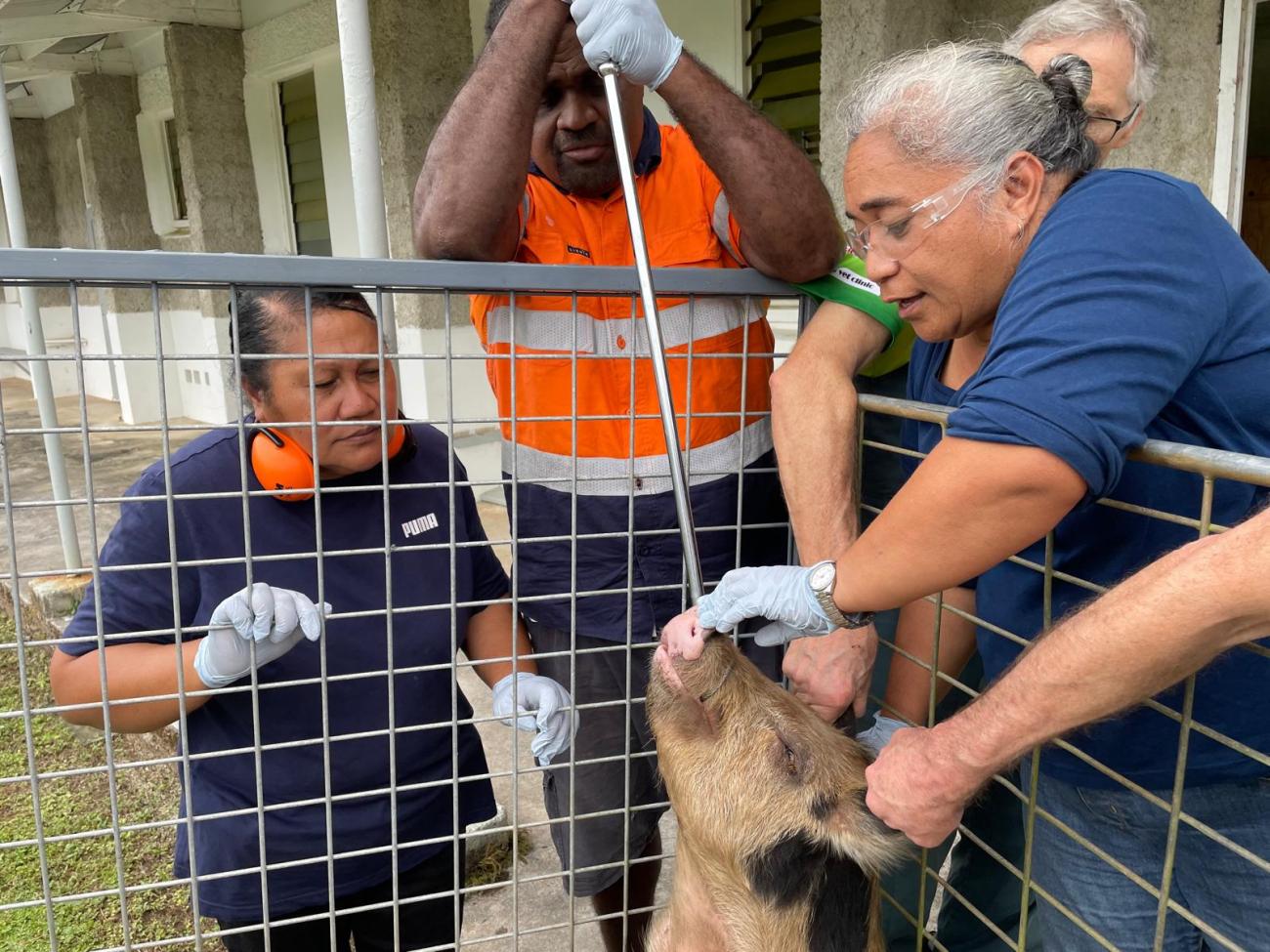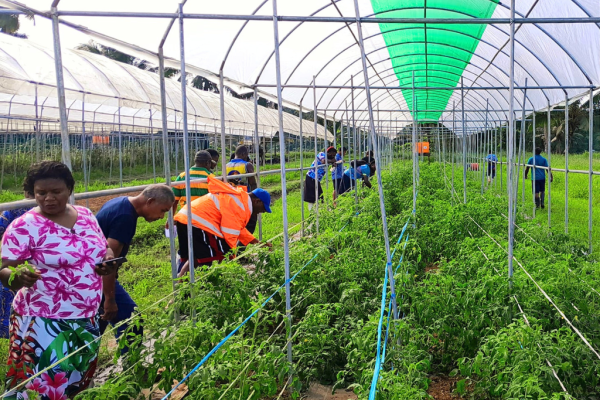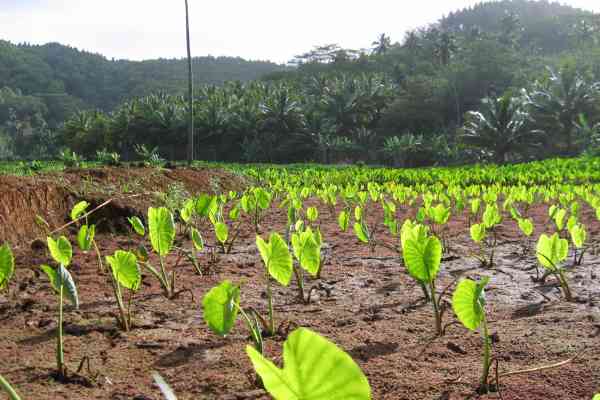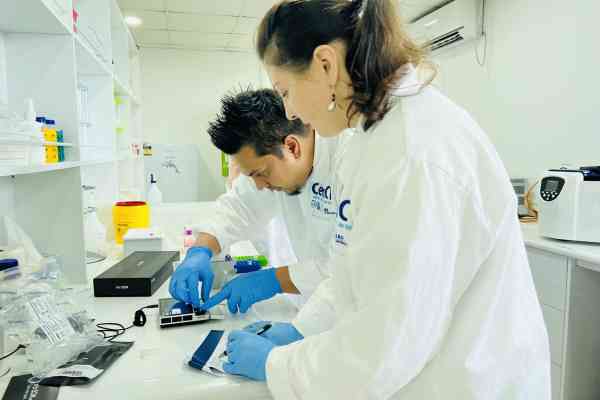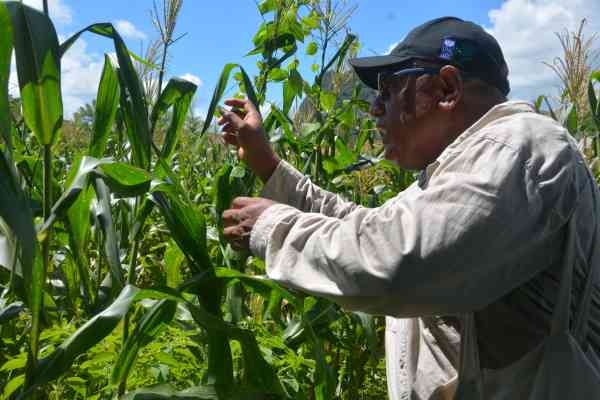(contenu disponible en anglais uniquement)
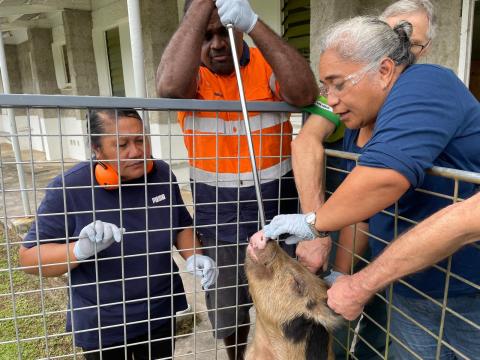
Six paravet trainees have passed their final assessment and are on their way to becoming fully certified paravets, marking a significant advancement in Niue’s animal health capabilities and veterinary support services.
This milestone follows the completion of a 16-week training programme by six participants – three women and three men. They represent the second batch of paravet graduates in Niue in many years. Additionally, three more participants enrolled in the programme are scheduled to sit for their final exams in August.
Organised by the Pacific Community (SPC) through the European Union-funded Safe Agricultural Trade Facilitation through Economic Integration in the Pacific (SAFE Pacific) project, the training programme was delivered in partnership with the New Zealand Ministry of Primary Industries (MPI) Animal Health and Biosecurity Pacific Partnership team, and the Niue Rock Vets team.
The training team was held in Niue from 10-13 June for summer school, marking the culmination of the 16-week programme. The summer school encompassed practical and theory revision sessions in preparation for final examinations.
Paravets provide basic animal health care and production advice to farming communities where veterinarians are scarce or absent. As the eyes and ears of veterinarians, they are also trained to provide care to sick animals.
Poimatagi Okesene, Niue Department of Agriculture, Forestry &Fisheries (DAFF) Director, described the paravet programme as a significant achievement for Niue.
“There are no qualified vets on the island, and through the ongoing partnership with the Rock Vets team from New Zealand, free health clinics are held twice a year for domestic animals.”
Okesene said DAFF also provided advice and assistance through its Livestock Division.
“We are very grateful as a Government Department to our partners, SPC-LRD, NZMPI, and Rock Vets, for their support towards the paravet programme because the majority of the paravet students are from within DAFF, and this was an opportunity to strengthen the overall capacity and availability of more resource people to address basic animal health matters,” he said.
SPC Pacific Heads of Veterinary and Animal Production Services Network Coordinator Elenoa Salele praised Niue’s commitment to building its resource capacity to strengthen its animal health sector.
“Having qualified paravets in-country ensures that Niue has the necessary expertise to protect its animal and livestock industry, safeguarding the entry and spread of serious animal diseases,” she said.
Dr Andy McFadden, NZ MPI Animal Health and Biosecurity Pacific Partnership Programme Manager, said, “We have been so impressed by the enthusiasm of the participating team. We know it will make a huge impact on agriculture in Niue, and this has been a shared journey between MPI, Rock Vets, SPC, and the programme students.”
“As teachers, we are learners too, and we have gained a lot from our interactions with the students, particularly as we discussed the different agriculture and animal health activities in Niue,” he said.
Agriculture professional Brandon Tauasi said the course was a valuable refresher and learning opportunity. With 25 years of working experience in the animal health sector, Tauasi looks forward to applying his newly acquired skills to his work.
“I look after the pigs at the government farm, and sometimes I’m called to check on sick animals. It’s always good to know that the things you learn in school are for the betterment of the government and country, and putting them into use is the finale," he said.
Paravet trainee Krista Lee said one of the things that stood out for her in the training was the practical component of the programme, which “teaches you more than a textbook can”.
Introduced in 2003, the paravet training was developed by SPC and has been implemented in 15 countries. The course was designed as a distance-learning programme focusing on animal health and production issues for livestock found in the Pacific, including cattle, goats, sheep, pigs, horses, and poultry. The paravet training programme in each country is modified to suit the country’s context in terms of the livestock present, based on requests from their respective Ministry of Agriculture before the training is conducted.
Niue’s successful participants will formally receive certification at a graduation ceremony planned for later this year. To date, 465 individuals from across the SPC member countries have graduated from the Paravet Training Programme.
About SAFE Pacific:
The SAFE Pacific project is funded by the European Union and implemented by SPC to support greater economic integration in the region. SAFE Pacific provides targeted assistance to support small Pacific Island countries in increasing export capacity and improving economic growth. SAFE Pacific is implemented across 15 Pacific countries, including Cook Islands, Fiji, Federated States of Micronesia, Kiribati, Nauru, Niue, Palau, PNG, Republic of the Marshall Islands, Samoa, Solomon Islands, Timor-Leste, Tonga, Tuvalu, and Vanuatu.
